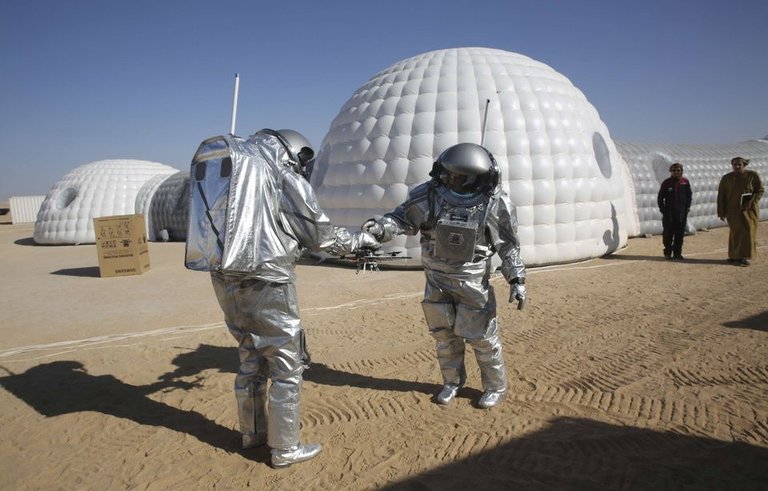Research and simulations of living conditions on Mars have been conducted by astronauts in the desert of Oman

In the middle of the dunes and camels, a strange experience was conducted this week in the desert of Oman. Astronauts in space suits have conducted research and simulations of living conditions on the planet Mars .
They came as part of the AMADEE-18 program launched Thursday by the Austrian Space Forum under the patronage of the Sultanate of Oman and with the support of private companies and universities. The goal is to find its place on a new alien playground with contours still vague.
Innovate outside the structures
Researchers, inventors, space professionals and enthusiasts are entrenched in a camp fenced with barbed wire and under the protection of the local armed forces. Inside they perform different experiments, such as driving autonomous vehicles through the camp or growing fresh vegetables under a plastic greenhouse.
Just as US billionaire Elon Musk, who has just launched into space Falcon Heavy , the most powerful rocket in the world, members of the Austrian Space Forum share the desire to innovate outside the structures of extremely rigid national space programs .
A heritage that must be "preserved"
Forum President Alexander Soucek says he has no official position on space exploration and mining, but believes that future missions will naturally benefit from what they find.
"We will have to use the resources we will find on Mars because we can not bring everything from the Earth. This is called in situ resource use. So we have to use the things we find: first to support life there, to support the missions there and then, in the longer term, perhaps for other things as well, " said Alexander Soucek.
"We have to find a balance between setting foot on Mars and recognizing that it is a common heritage and preserving it for future generations," Kartik Kumar, a space debris specialist, added.
You got a 4.60% upvote from @luckyvotes courtesy of @udesh!
You got a 3.16% upvote from @allaz courtesy of @udesh!